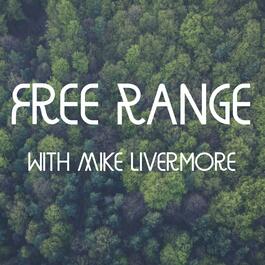
S2E24: Adam Ortiz on Life as an EPA Regional Administrator
On this episode of Free Range, host Mike Livermore is joined by Adam Ortiz, the MidAtlantic regional administrator at the Environmental Protection Agency. The conversation begins with a discussion of the role of a regional administrator at EPA. Ortiz emphasizes the importance of federal agencies working with local and state governments due to the complexity of environmental issues. He also discusses some of the specific challenges of the MidAtlantic: it is a coastal region with a rich industrial past; an agricultural region; and, a region where resource extraction has been prevalent. Taken together, the diversity of histories, industries, and geographies make the MidAtlantic a fascinating and challenging region for environmental governance. The topic switches to environmental justice-related work and an ongoing Superfund cleanup in the city of Baltimore clean-up. The two discuss the value of redeveloping areas that experienced environmental damage in the past, especially given the concentration of these sites along lines of race and class. Ortiz discusses EPA’s efforts to identify and clean up these sites to “plug them back into society.” There is a large human component to this kind of work, and Ortiz emphasizes the importance of giving communities a voice and encouraging open, honest dialogue with residents. This is one of the main ways the EPA addresses the negative impacts of redevelopment, such as gentrification. They go on to discuss how EPA works with state and local actors on complex projects with many overlapping jurisdictions. (0:28-34:30) The conversation shifts to the ways Ortiz’s department works to support indigenous tribes. The EPA works with tribes to support their sovereignty, protect their land, and help facilitate their capacity for environmental governance. Livermore then inquires about the Chesapeake Bay, a body of water that has been of great concern to the EPA in recent years. Water quality has been improved overall, although progress hasn’t been linear, and EPA has only limited authority as a federal agency. Because of this, pollution control falls heavily on nearby states, and Ortiz points to recent efforts by the states of Pennsylvania and Virginia. The conversation turns to the intersection of politics and environmental governance at the regional level. Livermore asks whether regional governance faces less political polarization, and Ortiz observes that, compared to the national level, regional interactions are often less politicized. Ortiz praises a personal approach to solving complex issues, asserting the effectiveness of working with people directly and getting to know them personally. Additionally, there is a local advantage when it comes to political support for environmental initiatives, because people tend to care about places they interact with, regardless of political affiliation. (34:31-1:01:09)
From "Free Range with Mike Livermore"


Comments
Add comment Feedback